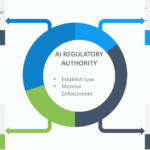In a world where anyone can post, review, or comment with the tap of a finger, a business’s reputation is more exposed than ever. However, despite this reality, many organizations still underestimate the impact of a few negative reviews—or even the absence of an online presence—on their credibility.
What Is Reputation Management?
Reputation management is the ongoing effort to shape how others perceive your business. It involves everything from monitoring online reviews to responding to feedback, building trust, and preventing issues from escalating into full-blown crises.
A strong reputation management strategy helps you:
- Build trust with your audience
- Address negative feedback before it spreads.
- Position your brand as reliable and customer-focused
And in today’s online environment, it’s not just helpful—it’s essential for long-term success.
Why It Matters to Your Business Strategy
Consider reputation management a crucial component of your business strategy. It supports brand credibility, shapes how stakeholders see your organization, and plays a direct role in customer loyalty and revenue.
Ignoring it? That can result in lost trust, bad press, and missed opportunities. Prioritizing it? That leads to stronger engagement, better customer relationships, and a more resilient brand.
Where Businesses Go Wrong
Even well-meaning companies can slip up when it comes to managing their reputation. Here are some of the most common mistakes:
1. Not Paying Attention to Online Presence
A weak or outdated online presence makes it harder for customers to trust you. It also means you’re likely missing what people are saying, good or bad.
An effective online presence includes:
- Updated social profiles
- Active engagement on reviews
- SEO strategies that highlight your strengths
Being present online isn’t just about visibility; it’s also about authenticity. It’s about showing up where your customers are and making sure what they find builds confidence in your brand.
2. Ignoring Customer Reviews
Online reviews shape buying decisions. If you’re not monitoring what people are saying—or worse, ignoring it—you’re missing valuable insights.
Negative reviews left unaddressed signal a lack of care. On the other hand, responding thoughtfully shows that you value feedback and want to make things right.
Make it a habit to:
- Track reviews across platforms
- Respond to both positive and negative feedback
- Use that feedback to improve
3. Failing to Respond to Negative Feedback
Staying silent in response to negative feedback can cause more damage than the review itself. A lack of response sends the message that you don’t care—or aren’t paying attention.
Instead, aim to:
- Respond quickly and professionally
- Acknowledge the issue
- Offer a clear solution
This not only demonstrates accountability but also provides an opportunity to transform a challenging situation into a more positive experience.
Why Hiring a Reputation Consultant Can Help
Managing your reputation in-house is possible, but it can be a time-consuming process. That’s where reputation consultants come in.
They bring a level of experience, objectivity, and tools that most internal teams don’t have. With their help, you can:
- Address existing reputation issues
- Build a long-term strategy
- Free up internal resources to focus on core operations
Here are a few reasons why partnering with a consultant can make all the difference.
Industry Experience and Expertise
Reputation consultants understand how to navigate PR crises, sentiment trends, and digital platforms. They know what works—and what doesn’t—because they’ve seen it all before.
A good consultant will:
- Audit your brand’s current reputation
- Spot emerging risks
- Build a strategy tailored to your goals
Their insights help you stay one step ahead and avoid costly missteps.
Saves Time and Resources
Reputation management requires constant monitoring, prompt responses, and a well-planned approach. Outsourcing this to an expert enables your team to focus on growth while ensuring your reputation remains protected.
The result? A more efficient process, clearer priorities, and a reputation strategy that doesn’t fall through the cracks.
How to Choose the Right Reputation Consultant
Not all consultants are created equal. Choosing the right one means finding someone who understands your industry, aligns with your values, and can deliver real results.
Here’s how to make sure you find the right fit:
What to Look For
- Proven track record: Ask for examples and testimonials.
- Relevant experience: Industry-specific knowledge matters.
- Clear communication: Transparency, responsiveness, and clarity are key.
- Effective tools: Make sure they offer the analytics, monitoring, and response support you need.
A consultant who understands your audience—and how to effectively communicate with them—will be more effective in protecting your reputation and growing your brand.
Smart Questions to Ask
Don’t be afraid to dig deep. Try questions like:
- “What’s your experience with companies in our industry?”
- “Can you walk me through a time you helped resolve a reputation crisis?”
- “How do you measure success?”
These conversations will help you understand their process and provide insight into how well they will work with your team.
Final Thoughts
Your reputation can shape your business’s future, for better or worse. The good news? With the right approach and the right help, you can take control of it.
Avoid common missteps, stay engaged with your audience, and consider hiring a consultant to help steer the project. Because at the end of the day, a strong reputation isn’t just a nice-to-have—it’s one of your most valuable assets.




